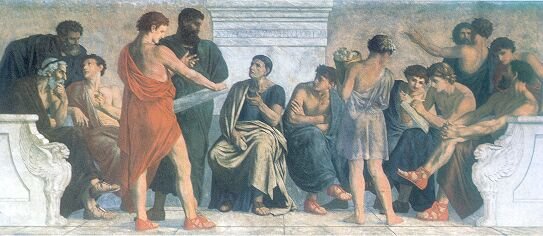History of Education
Regular systematic teaching, such as signing, an important development being transmitted in society for the last 150 years, and even in some countries, the development trend has started in the last fifty years.In the past, teenage girls gained skills from the school, such as dynasty, rule , Subject-based competence etc.Education is a process of learning, or knowledge acquisition, skill, value Odha, a process of faith and practice. Educational methods include storytelling, discussion, teaching, training, and conducted research. Education often happens under the instruction of the teacher, but students themselves can educate themselves.
Education can be conducted in formal or informal tactics and any experience that has a constructive effect on how people think of their feelings. Pedagogy is called pedagogy.
Education can be primarily divided into pre-school or kindergarten, primary school, secondary school and then as college, university or beginner.
The rights of education have been recognized globally and by some governments: 13 of the United Nations Convention on the Economic, Social and Cultural Rights Act of 1966 has recognized the universal right of education. In most areas education is mandatory for a certain age.
Etymology:
Grammatically, the word "education" comes from the Latin ēducātiō (which means reproduction and rearing) from the word ēducō (which means I teach, I teach) that is related to homonym ēdūcō (which means I am going forward) and Origin from Dōcō (which means I lead, I manage).
History:
In prehistoric times, education was started by the elderly by providing the knowledge and skills needed for the youths' society. Pre-educated society was largely verbally and imitated. Through storytelling, knowledge, values and skills have shifted from one generation to the next generation. Cultural efficiency can be expanded through simultaneous acquisition of knowledge and improving formal education. The school was present in Egypt during the Middle Kingdom.
Plato founded the Academy at Athens which was the first institution of higher education in Europe. The city of Alexandria was founded in 330 BC, as it became famous in ancient Greece as the intellectual pad in Athens. There, the largest library in Alexandria was built in the 3rd century BC. After the fall of Rome in 476, literacy and organization fell in European civilization.
Confucius (551-479 BC) in China was the most influential ancient philosopher of the state of Loo, whose educational aspect influenced the Chinese society and neighboring countries like Korea, Japan and Vietnam. Confucius unites the disciples and searches a ruler in vain, who will accept his ideals for good governance. His Analects were written by the followers who have been influencing in education in the modern era in East Asia.
After the fall of Rome, the Catholic Church became the only patron of literacy and scholarship in Western Europe. Church Cathedral School was established as a center for modern education. These institutions were eventually established as the precursors of the medieval universities and various modern universities of Europe. During the high medieval times the Charters Cathedral was headed by the famous and influential Chartres Cathedral School. Medieval universities of Western Europe were consolidated across Western Europe, which encouraged freedom of investigation, and created a number of scholars and natural philosophers, such as Thomas Aquinas of the University of Naples, Robert Grossetst of Oxford University and early publisher of the systematic method of scientific examination, and pioneer of biological research, St. Albert Great One ilena. Founded in 1088, Boloni University is considered to be the first and the oldest operating university.
During the medieval times, Islamic science and math in the Middle East had flourished under the Islamic caliph, which expanded from the West Iberian Peninsula to East Sindh and to the AlmoraVid Dynasty and to the Empire of the South.
In Europe, Renaissance initiated a new era of scientific and intellectual investigation and understanding of ancient Greek and Roman civilizations. About 1450, Johannes Gutenberg created a printing press that inspired the spread of literature more quickly. In the era of European empires, the ideas of European philosophy, religion, industry, and science spread throughout the world. Missionaries and scholars were bringing new ideas from other civilizations - with the Jesuit China mission that played an important role in spreading knowledge, science and culture among China and Europe. For example, translating works from Europe, such as Euclid's Elements for China scholars and European listeners, can be understood by Confucius's thinking of consciousness. Under Enlightenment, the need for more neutral educational perspectives in Europe was realized.
In most countries today full-time education for all children has been made compulsory in schools or elsewhere. For this reason, combined with the increase in compulsory education and population growth, UNESCO has calculated that in the next 30 years, more people will get formal education which will be rare in human history.
#Thanks for Following...

